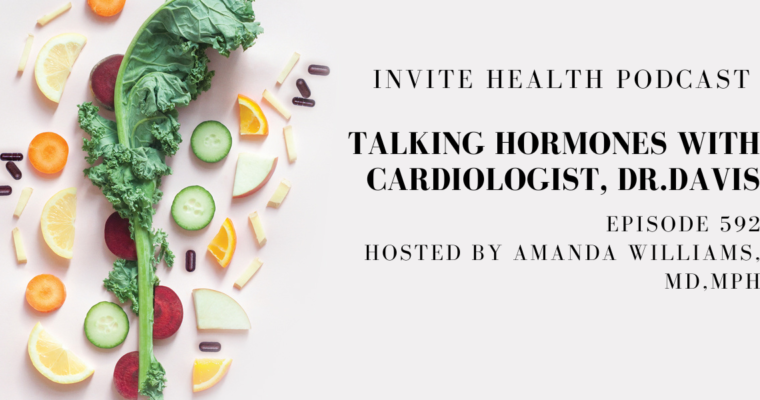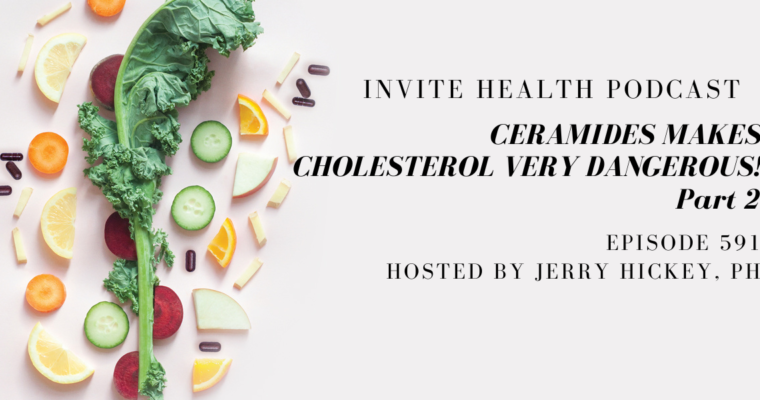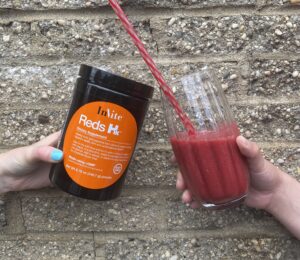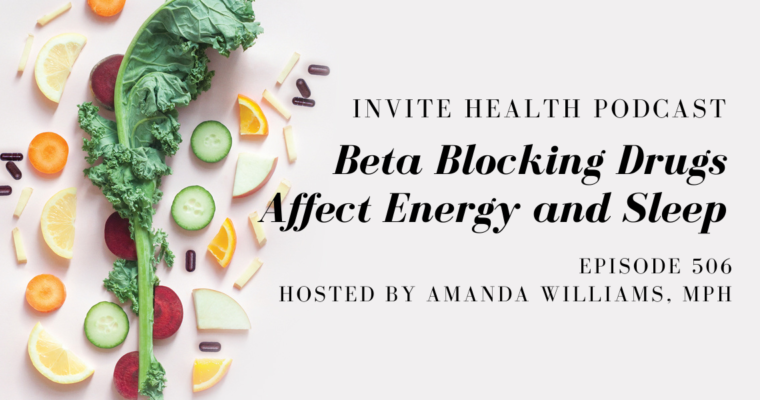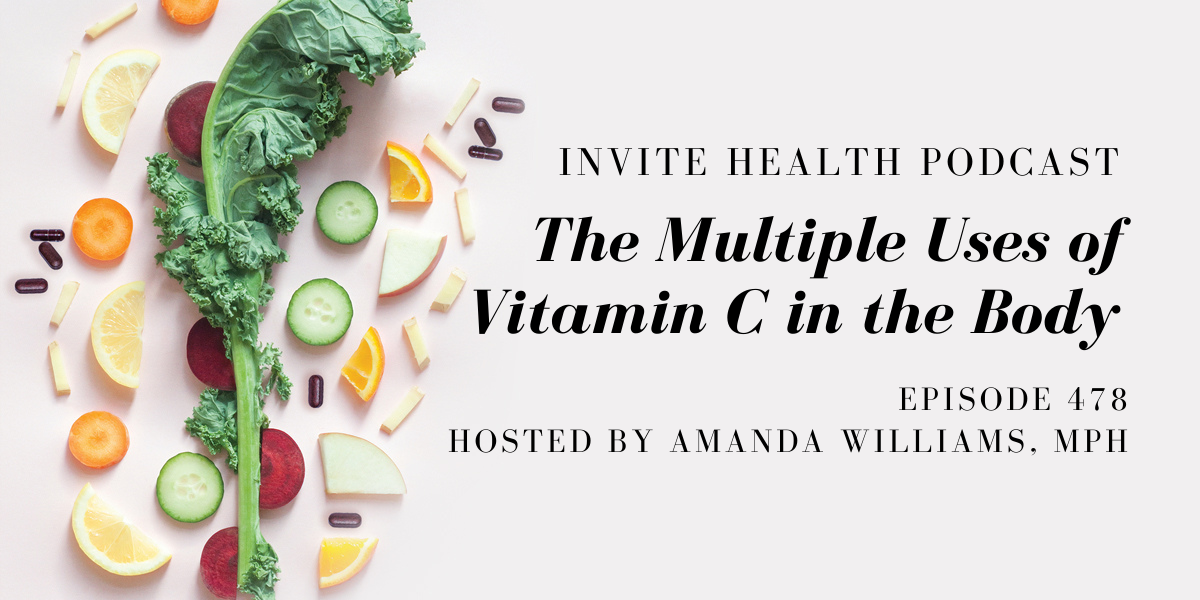Vitamin C
Subscribe Today!
Please see below for a complete transcript of this episode.
The Multiple Uses of Vitamin C in the Body – InViteⓇ Health Podcast, Episode 478
Hosted by Amanda Williams, MPH
*Intro music*
InVite Health Podcast Intro: Welcome to the InViteⓇ Health Podcast, where our degreed healthcare professionals are excited to offer you the most important health and wellness information you need to make informed choices about your health. You can learn more about the products discussed in each of these episodes and all that InVite Health has to offer at www.invitehealth.com/podcast. First time customers can use promo code PODCAST at checkout for an additional 15% off your first purchase. Let’s get started!
*Intro music*
Amanda Williams, MPH: When it comes to vitamins, Vitamin C certainly does so many things in the body that go far beyond that of just supporting our immune system. And when we look at the science of Vitamin C, it is astronomically large. If you just go to PubMed, for example, there’s 70,000 clinical research studies that include Vitamin C. So we know that Vitamin C is an integral part of our overall health and today I want to talk a little bit about how Vitamin C is utilized in the body, outside of just that for the immune system support, because it really is a multi-functional vitamin that is affecting so many different systems.†
I’m Amanda Williams, MD, MPH and oftentimes when people think of Vitamin C or Vitamin C deficiency, they think of scurvy. Now, we know that scurvy is very rare when it comes to its occurrences now. You still see this in developing parts of the world, but, in general, scurvy is very, very rare. We know that back during the Scottish war with England, this was a very big problem within the Scottish army and navy, but we’re talking back in the late 1700s. Scurvy in modern day is definitely very rare. What it is is it’s a Vitamin C deficiency and it includes things such as feeling weak, feeling tired, having a lack of energy, weakness within the extremities and certainly, when we don’t have adequate red blood cell production and we’re having issues that then become a bleeding concern. So this is how, generally, it would present itself: the weakness, the issues within the gums, poor wound healing, changes within the hair, certainly are common.†
But we know that Vitamin C is required for collagen synthesis and so for the proper crosslinking of those collagen fibers, we have to have Vitamin C, so hence, this is when you would see that lack of Vitamin C, how that collagen would actually be impacted by this.†
ALL ABOUT HYDROLYZED COLLAGEN – INVITE HEALTH PODCAST, EPISODE 23. Listen Now>>
Looking at the broad scope of Vitamin C, when it comes to disease prevention, it is really quite pronounced as to how it is that Vitamin C is playing this very important role in many different metabolic functions, including playing a role with the activation of B-vitamins. When we think about folic acid, for example, and how folic acid needs to convert into its metabolically active form, Vitamin C plays a part in this. So if we don’t have adequate Vitamin C, now you can start to see how folate can be impacted by this.†
We know that we require Vitamin C just as its antioxidant properties yield us when it comes to fending off oxidative stress and free radicals in the body. But when you start to look at Vitamin C in respect to different disease states, whether that’s atherosclerosis, whether that’s diabetes, neurodegenerative diseases, cancers, for example, we now understand that Vitamin C is definitely critical as a physiological component to so many different pathways in the body. When we think about the synthesis and the metabolism of things like tyrosine, which is important when we think about thyroid function, when we think about folic acid and tryptophan, so even when we’re thinking about neurotransmitters like serotonin, when we look at the facilitation of cholesterol into bile acids, so low Vitamin C can impact your cholesterol levels. There’s a lot of ways that Vitamin C is playing a part in the different ways in which the body is responding.†
Most times we think about Vitamin C solely as that immune system support and obviously we know that both our innate and adaptive immune systems are heavily reliant on the function of Vitamin C for the activation of key processes of the immune response. But we also have to look at Vitamin C when it comes to its role for eye health, for example. For fending off oxidative stress, keeping the optic nerve healthy, keeping the retinal cells healthy. These are all very, very important.†

Now, Vitamin C is a water-soluble vitamin, so this is kind of like when we think about those B-vitamins and potential deficiencies. If we’re not getting adequate exposure to Vitamin C, you may not be deficient to the point that it’s triggering scurvy, but you could be deficient to the point that it’s certainly impacting your blood vessels, that it’s impacting your eye health. We know all of these different ways in which Vitamin C is critical. We know that Vitamin C is directly correlated with inflammation, that plasma levels of Vitamin C have been shown to be directly correlated with things such as C-reactive protein, looking at low levels of Vitamin C in the blood and seeing higher levels of endothelial dysfunction within the cardiovascular system. So there’s a lot of different ways in which Vitamin C is certainly playing this very important and key and essential role with keeping us healthy each and every single day.†
Now, it’s very important when we’re supplementing with Vitamin C that we are choosing a form of Vitamin C that’s actually going to absorb and not just be broken down through the digestive process itself and that the sourcing of that Vitamin C is from a natural source and it’s not synthetically produced. The problem is that most people who manufacture Vitamin C, they go with the cheapest raw material that they possibly can use and this is where that problem comes into play. We want to make sure that we are using a clean Vitamin C coming from natural sources. Hence, when you’re using our Vitamin C’s, whether it’s the buffered, which is easier on the GI system to kind of dampen down that acidity that is associated with Vitamin C, our Vitamin C’s are coming from that natural source and the absorption rate is very, very good.†
Knowing that Vitamin C is associated with inflammation and seeing that low levels of Vitamin C are linked with higher C-reactive protein levels, higher homocysteine levels… Understanding all of these and understanding that in terms of wound healing, we have to make sure that we have adequate Vitamin C on board. This is the biochemical functions of this key and essential vitamin. So thinking about wound healing, thinking about the correlation between Vitamin C and iron absorption in the body, for example… Knowing that Vitamin C does a really nice job at binding iron, so for someone who is anemic, for example, Vitamin C-rich foods, along with Vitamin C supplementation, is incredibly advantageous. When you look at issues with fertility, this is a real interesting component with Vitamin C, is that reactive oxygen species or the free radical damage that can occur within the reproductive organs, this is a big area of research right now. Understanding that having adequate Vitamin C levels can certainly impact the issues that even a lot of men have in terms of low sperm quality, so Vitamin C supplementation in men who are having an issue when it comes to fertility is an area that many physicians are certainly diving into.†
SIGNS & SYMPTOMS OF AN IRON DEFICIENCY – INVITE HEALTH PODCAST, EPISODE 62. Listen Now>>
And, as I mentioned, being able to target oxidative stress within our LDL particles, which is the low-density lipoprotein, this is another area that’s very important and hence where Vitamin C plays this critical role when it comes to supporting our cardiovascular system, when it comes to the support of the endothelial cells, or the cells that line your blood vessels. When it comes to really helping to downregulate Tumor Necrosis Factor alpha for basically impeding or mitigating inflammation. All of these different areas that we see Vitamin C playing this really important or significant role… Vitamin C and diabetes, this is another area where we see that diabetics oftentimes have lower levels of serum Vitamin C, which can lead to issues with higher blood glucose, but it can also lead to issues with atherosclerosis in diabetics because they’re getting more significant damage done due to those endothelial cells and it’s impairing the endothelial function. So, as a whole, even if you’re utilizing Vitamin C just in the setting of its modulation for our immune system, that’s great, but I just want you to always understand how it is that Vitamin C is working for detoxification in our system, helping to fend off oxidative stress, helping to support that crosslinking of collagen when it comes to skin health, hair health, wound healing, as well as eye health and when we look at neurodegenerative disorders, we are seeing the important way in which Vitamin C is helping the neurons in the brain fend off the oxidative stress that has been correlated with so many different neurodegenerative disorders.†
So that’s just a little highlight on some of the utilizations of Vitamin C in the body and that is all that I have for you for today. I want to thank you so much for tuning into the InViteⓇ Health Podcast. Remember, you can find all of our episodes for free wherever you listen to podcasts or by visiting invitehealth.com/podcast. Now, do make sure that you subscribe and you leave us a review. You can follow us on Facebook, Twitter and Instagram at @invitehealth and we will see you next time for another episode of the InViteⓇ Health Podcast.†
*Exit music*


